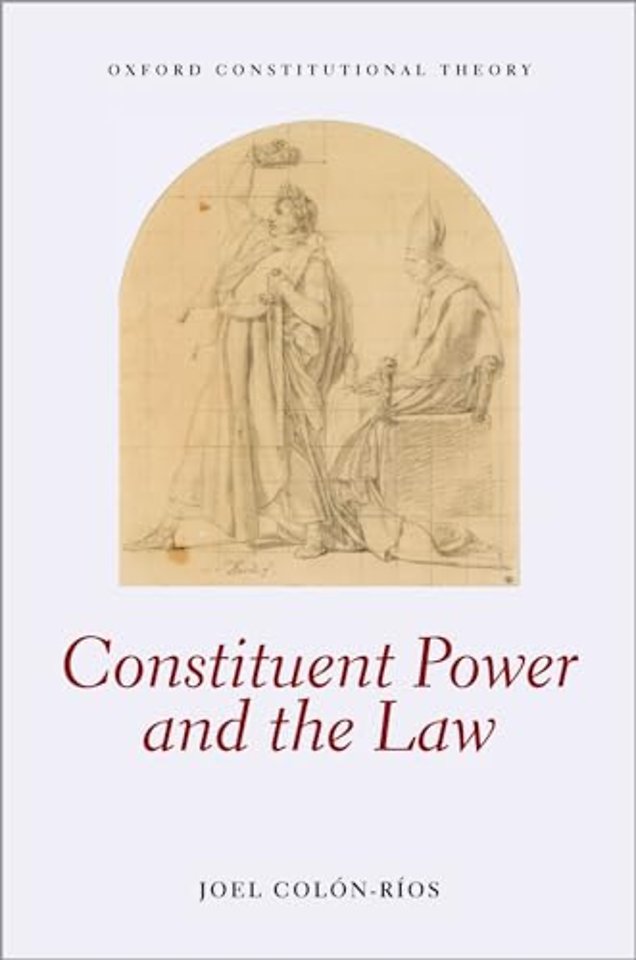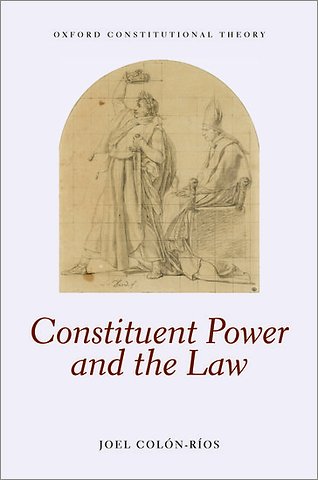


Joel Colón-Ríos is Professor of Law at Victoria University of Wellington. He has published widely in the areas of constitutional theory and comparative constitutional law and is the author of Weak Constitutionalism: Democratic Legitimacy and Constituent Power.
Meer over Joel Colón-RíosConstituent Power and the Law
Samenvatting
Constituent power is the power to create new constitutions. Frequently exercised during political revolutions, it has been historically associated with extra-legality and violations of the established legal order. This book examines the relationship between constituent power and the law. It considers the place of constituent power in constitutional history, focusing on the legal and institutional implications that theorists, politicians, and judges have derived from it.
Commentators and citizens have relied on the concept of constituent power to defend the idea that electors have the right to instruct representatives, to negate the doctrine of parliamentary sovereignty, and to argue that the creation of new constitutions must take place through extra-legislative processes, including primary assemblies open to all citizens. More recently, several Latin American constitutions explicitly incorporate the theory of constituent power and allow citizens, acting through popular initiative, to trigger constitution-making episodes that may result in the replacement of the entire constitutional order.
Constitutional courts have also at times employed constituent power to justify their jurisdiction to invalidate constitutional amendments that alter the fundamental structure of the constitution and thus amount to a constitution-making exercise. Some governments have used it to defend the legality of attempts to transform the constitutional order through procedures not contemplated in the constitution's amendment rule, but considered participatory enough to be equivalent to 'the people in action', sometimes sanctioned by courts.
Building on these findings, Constituent Power and the Law argues that constituent power, unlike sovereignty, should be understood as ultimately based on a legal mandate to produce a particular type of juridical content. In practice, this makes it possible for a constitution-making body to be understood as legally subject to popularly ratified substantive limits.
Specificaties
Inhoudsopgave
2: Back to Rousseau
3: Sieyès via Rousseau
4: Between Law and Revolution
5: Of Constituent Nations
6: The Identity and Limits of the Constituent Subject
7: Rejecting Constituent Power
8: The Material Constitution
9: Sovereignty and Dictatorship
10: The Juridical People
11: Conclusion
Anderen die dit boek kochten, kochten ook
Net verschenen
Rubrieken
- aanbestedingsrecht
- aansprakelijkheids- en verzekeringsrecht
- accountancy
- algemeen juridisch
- arbeidsrecht
- bank- en effectenrecht
- bestuursrecht
- bouwrecht
- burgerlijk recht en procesrecht
- europees-internationaal recht
- fiscaal recht
- gezondheidsrecht
- insolventierecht
- intellectuele eigendom en ict-recht
- management
- mens en maatschappij
- milieu- en omgevingsrecht
- notarieel recht
- ondernemingsrecht
- pensioenrecht
- personen- en familierecht
- sociale zekerheidsrecht
- staatsrecht
- strafrecht en criminologie
- vastgoed- en huurrecht
- vreemdelingenrecht





